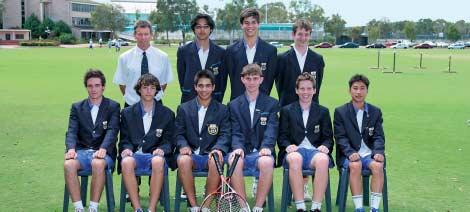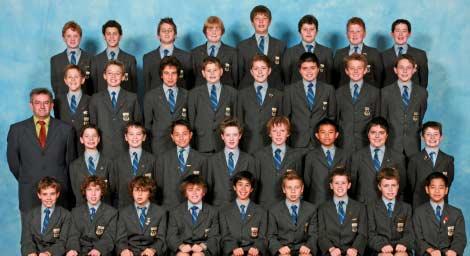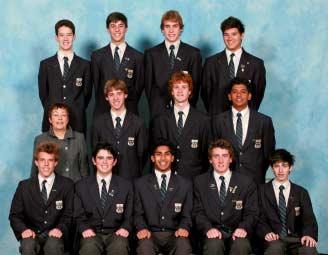Faith Education T
here have been many articles written over the years about the nature and purpose of Catholic schools and the many counter cultural issues they face in the world of the 21st century. To be authentic Trinity College must stand within the Church reflecting the charism of Mr Gerard Theseira Edmund Rice. At the core Director of Faith Formation of Trinity College sits the Learning Area of Religious Education. The Church is seen as a community of believers who place themselves in the hands of the God mystery. The faithful are seen as the people of God who seek communion and fellowship sharing gifts and unity. The Religious Education program at Trinity captures the aspects of believers in community with a common God, sharing their personal gifts. The structure of the program is a legitimate concept of developing: knowledge of the Bible, Sacraments, Church documents, morality and active participation in the Church. The students at Trinity College are firstly a gathering, a community of people who seek out and embrace the mysterious actions of God in their lives. Religious Education is seen as a key curriculum area in Catholic schools and is subject to change as any other Learning Area. This Learning Area has the significant responsibility in the development and delivery of the Religious Education curriculum within Trinity College. The focus at Trinity College has been towards knowledge of faith, the development of skill to express that faith and formation of theological knowledge. The year 2006 has been exciting on many fronts in terms of Religious Education, as the staff work towards developing their faith knowledge and
nurturing their approach to Religious Education. Outcomes Education in the Learning Area of Religious Education is a challenge for change, particularly in the development of assessment that captures the essential expressions of knowledge in faith. There are many factors which assist change within the Learning Area of Religious Education. The most important is the link between ‘Theory & Practice’. When teachers are able to identify this link it will assist them to share their pedagogical style.
Faith Education
Religious Education teachers have been encouraged to attend the frequent professional development opportunities provided thoroughout 2006. Such professional development experiences help staff members to gain competencies in teaching and learning and develop knowledge in the text based curriculum. Growth in teacher confidence and a willingness to try new teaching and learning approaches in the classroom are the positive aspects of professional leaning experiences. This professional development focus in 2006 has helped members of the Learning Area to grow professionally and personally. Teamwork among the members of the Learning Area is a significant factor in the development of curriculum change at Trinity College. The development of effective professional relationships and the expertise among staff members has been enhanced by the experiences of teamwork. Opportunities to share creative aspects of pedagogy have resulted in an exploration of a variety of methods of implementing the curriculum. The positive relationship between members happens when they feel that their contribution has been valued and important. Liturgies, Retreats and Christian Service are opportunities that reflect the teamwork of the Religious Education staff. Mr Gerard Theseira Director of Faith Formation
157






















































